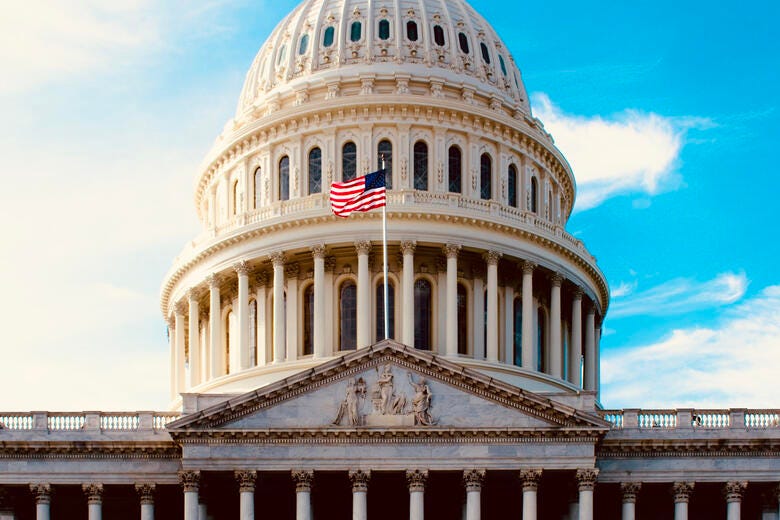
Taxing Times Ahead: The Nonprofit Sector and the One Big Beautiful Bill
- Published
- May 30, 2025
- By
- Eric Beining
- Topics
- Share
Note: This article was updated on May 29, 2025, to reflect changes made to the legislation.
Why This Bill Matters to Your Mission
As Congress debates sweeping tax reforms under the One Big Beautiful Bill Act (OBBB), nonprofit organizations face a pivotal moment. The House of Representatives passed the bill on May 22, 2025, and it now moved to the Senate for their legislative changes. This legislation proposes significant changes to how private foundations, universities, and charitable entities are taxed and regulated. From steep new excise tax tiers on endowments to expanded penalties on executive compensation, these provisions could reshape your financial strategies, donor relationships, and long-term sustainability. Understanding and preparing for these changes now is essential, not just for compliance, but to protect your mission and the communities you serve.
Key Provisions Affecting Nonprofits
1. Excise Tax on Private Foundation Investment Income
- Current Law: 1.39% flat tax on net investment income.
- Proposed Change: A tiered tax system based on total assets:
- Under $50 million: 1.39%
- $50 million – $250 million: 2.78%
- $250 million – $5 billion: 5%
- Over $5 billion: 10%
- Related organizations’ assets are included in the calculation.
2. Excise Tax on University Endowments
- Current Law: 1.4% tax on net investment income for certain private colleges/universities
- Proposed Change: A tiered rate based on “student-adjusted endowment:”
- $500,000 – $750,000 per student: 1.4%
- $750,000 – $1.25 million: 7%
- $1.25 million – $2 million: 14%
- Over $2 million: 21%
- Expanded definition of net investment income includes student loan interest and royalties.
3. Excess Compensation Tax Expansion
- Current Law: Applies to the top five highest-paid employees.
- Proposed Change: Applies to all covered employees of the nonprofit and related entities, significantly broadening its scope. Covered employees are any individual employed by an applicable tax-exempt organization who receives remuneration of more than $1 million.
4. Corporate Charitable Giving Floor
- Current Law: Corporations may deduct charitable contributions up to 10% of taxable income, but there is no minimum requirement.
- Proposed Change: Introduces a 1% minimum floor for corporate charitable deductions, potentially reducing the incentive for corporate giving unless it exceeds that threshold.
5. Unrelated Business Income and Expanded Scope of Taxable Activities
- Parking Benefits
- Current Law: Qualified transportation fringe benefits are generally exempt from unrelated business taxable income (UBTI).
- Proposed Change: Nonprofits would be taxed on parking benefits provided to employees.
- Certain Research Income
- Current Law: Income from research carried out by a nonprofit organization whose purpose is to perform this research and make it freely available to the public is exempt from UBTI.
- Proposed Change: Research income that is not publicly available would be considered unrelated business income and taxed accordingly.
Implications for the Nonprofit Sector
- Private foundations and large endowments face significantly higher tax burdens.
- Universities with large endowments may need to reassess investment strategies and student aid policies.
- Nonprofits with high executive pay or complex organizational structures may need to review compensation and governance practices.
- Corporate philanthropy could be discouraged by the new deduction floor.
- Expanded scope of taxable activities could increase nonprofit organizations’ UBTI.
The Bottom Line: Prepare, Don’t Panic
The One Big Beautiful Bill Act may not be in its final form, but its potential to reshape the nonprofit landscape is very real. Whether you're managing a foundation, leading a university, or advising a charitable organization, now is the time to get ahead of the curve. By understanding what’s at stake, from new tax burdens to compliance risks, you can turn uncertainty into strategy. In a world where policy shifts can ripple through missions and margins alike, staying informed isn’t just smart; it’s essential.
Find a broader summary of components of the bill here.
Contact us below if you have questions about how this bill may impact your organization.
What's on Your Mind?
Start a conversation with Eric












